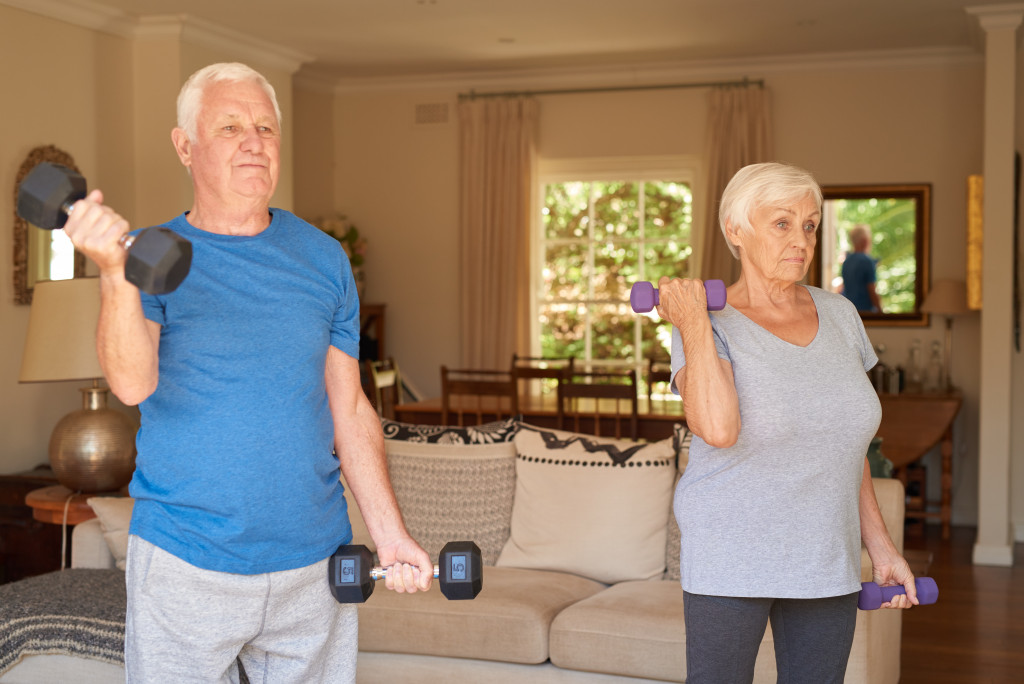Older adults require additional care and attention, which can be difficult for caregivers to manage. However, there are several ways to make the process easier, especially if the loved one has health conditions requiring treatment like arthritis, diabetes, and hypertension.
As people age, they may require a little extra help and care. Here are ten tips to help you provide the best possible care for your elderly loved ones:
1) Keep them engaged and active
It’s important to keep older adults active both mentally and physically. Stimulate their minds by engaging in conversations, playing games, or working on puzzles together. For physical activity, go for walks, do some gentle stretching, or help them with yard work.
2) Help them eat a healthy diet
As we age, our bodies change, and we don’t process food the same way we used to. It’s essential to make sure older adults eat a nutrient-rich diet to maintain their health. This includes plenty of fruits, vegetables, whole grains, and low-fat proteins.
3) Stay on top of their medication schedule
Older adults often take multiple medications, which are challenging to keep track of. Please help them by creating a schedule or using a pillbox. Be sure to check with your doctor regularly to ensure the medications are still necessary and practical.
4) Keep their home safe
As we age, we’re more at risk for falls and other accidents. To help prevent injuries, make sure their home is safe. Remove any tripping hazards, such as loose rugs, and install grab bars in the bathroom.
5) Help them stay socially connected
Social isolation can be a problem for older adults. To help them stay connected, encourage them to participate in social activities, such as joining a club or religious services. You can also keep in touch by visiting often, calling, or writing letters.

6) Be patient and understanding
Older adults may sometimes become confused or forgetful. It’s essential to be patient and understand that this is part of aging. Try to rephrase what you’re saying or offer assistance without being condescending.
7) Respect their wishes
As we age, we all want to maintain our independence for as long as possible. It’s essential to respect the wishes of older adults, even if it means doing things differently than you’re used to. For example, they may want to continue driving even though they think it’s no longer safe.
8) Avoid caregiver burnout
Caring for an older adult can be demanding, both emotionally and physically. To avoid burnout, it’s essential to take care of yourself. Get enough rest, eat a healthy diet, and exercise regularly. You may also consider joining a support group or hiring professional help.
9) Have realistic expectations
It’s essential to have realistic expectations when caring for an older adult. They may not be able to do everything they could before, and that’s okay. Accepting their limitations can help you adjust to the changes in their abilities.
10) Seek professional help when needed
There may be times when you need additional help, such as when an older adult is dealing with a chronic illness or dementia. In these cases, it’s essential to seek professional help. Home health aides, nurses, and therapists can assist when needed.
Encourage your loved ones to stay active both mentally and physically. This can help keep their bodies and minds healthy as they age.
The Benefits of Caring for Older Adults
Caring for older adults can be challenging, but it can also be rewarding. Helping them stay engaged and active, eat a healthy diet, stay hydrated, avoid falls, and get a good night’s sleep can improve their health and well-being. In addition, caring for older adults can help reduce feelings of isolation and loneliness. If you are caring for an older adult, seek help from family, friends, or professionals when needed.
Types of Adult Care Services
Various care services are available to older adults, depending on their needs. These services can be provided in their home, care facilities, or community.
Home care services assist with activities of daily living, such as bathing, dressing, and eating. Home health aides can also provide primary medical care, such as checking vital signs and providing medication reminders.
Care facilities, such as nursing homes and assisted living facilities, provide more comprehensive care for older adults. These facilities can offer a wide range of services, including nursing care, rehabilitation, and social activities.
Community-based services can help older adults live independently in their own homes. These services, often provided by volunteers, can include transportation, meals on wheels, and home-delivered groceries.
No matter what type of care an older adult needs, it’s essential to choose a qualified and experienced provider. When possible, try to get recommendations from family or friends. You can also contact your local Area Agency on Aging for more information.
Key Takeaways
Caring for an aging parent or loved one can be a rewarding experience. It’s an opportunity to show them your love and appreciation for all they’ve done for you. However, caring for an older adult can also be challenging, and it’s essential to be prepared. Use these tips to help you manage an older adult in a respectful, supportive, and beneficial way for both of you.

